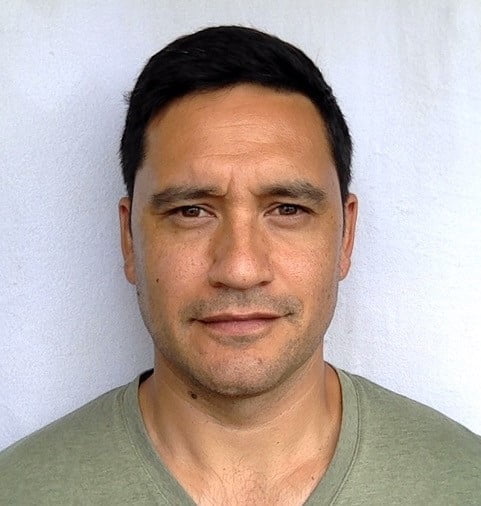Nathan Matamua was born and raised in Levin, a town to the south of Palmerston North.
“My tribal home is in the Bay of Plenty,” says Nathan. “I’m Tūhoe, and I’ve always been made aware of that. But even though we’ve constantly travelled home, in many ways, I still see myself as an outsider.”
Nathan sees his Master’s as a way of reconnecting with his roots and with his whānau.
“Prior to being a student, I was a supply chain manager for a global company,” says Nathan. “I had the good career, but I wanted to spend a bit more time focused on family.”
Studying was a way of doing that, and Nathan has found that it has naturally progressed to reconnecting with his identity. Nathan is doing his Master’s in psychology at Massey University as part of SO2. For his thesis, Nathan will be working with the Tūhoe Tuawhenua Trust, a Māori organisation responsible for administering land in Te Manawa o te Ika, the Tuawhenua region of Ruatāhuna.
With SO2’s specific interest in freshwater, Nathan’s research will likely focus on the Whakatane River.
“Its headwaters begin within the Tuawhenua region, and there are a number of streams that feed into it,” says Nathan. “It is an important source of sustenance and a way of maintaining a healthy lifestyle, in both a physical and spiritual sense.”
Nathan will be exploring the Tuawhenua world view about water value and management from their ontological perspective rather than imposing upon it or filtering it through an understanding of kaitiakitanga.
“Kaitiakitanga is not a term that is necessarily relevant across the diversity of Māori,” says Nathan.
He explains that there are many nuanced cultural expressions and rituals that feed into what it means to be part of an environment. Enacting those rituals and traditional practices can be a way of maintaining the environment and also maintaining cultural identity.
“Quite often we focus on maintaining the environment for the environment’s sake,” says Nathan. “But all that does is maintain a disconnect between environments and humans.”
He points out that Māori illicit their connection to the environment through a range of terms and values, not just one specific term.
“For my iwi, I’ve been told that a more appropriate term is matemateaone,” says Nathan. “I understand this term to describe our sense of connection with, or longing for, land. It’s more of an experiential term of feeling as opposed to a concept that elicits values.”
Nathan is also looking to incorporate Māori astronomy into his research.
“There is a growing interest in Māori astronomy and its connection with environment,” says Nathan. “Māori astronomy observations are based on patterns, phases and cycles in the stars that are reflected in the environment.”
This approach would bring a pre-colonial lens to environmental management.
“This knowledge is from a time before we started managing our environmental practices as they are now,” says Nathan. “There’s an opportunity to renavigate some of our interactions with the environment to have better wellbeing outcomes, not only for the species but for humans as well.”
Jenny Leonard
